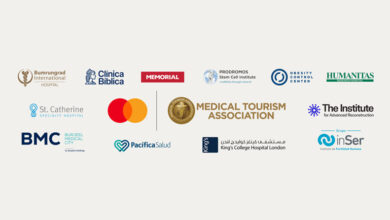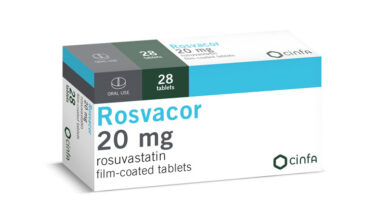Roche Webinar Highlights the Urgency of Adopting Personalised Healthcare Solutions in the Middle East
Experts from the region discuss the importance of future-proofing healthcare systems beyond Covid-19

Roche, a global pioneer in pharmaceuticals and diagnostics, hosted a virtual plenary session titled “Building Resilient Health Systems in the Middle East”. The session, moderated by Rima Maktabi, Al Arabiya News Channel Bureau Chief – London and Former CNN host – Inside the Middle East, featured a panel of prominent business and public health experts. The session discussed the pandemic’s impact on healthcare in the Middle East, and the measures needed to pave the way for the future of healthcare in the region.
This session is part of the global FutureProofing Healthcare initiative, supported by Roche, which examines the fundamental drivers of sustainable healthcare systems. Through collaborative discussions, Roche seeks to shift decisions in healthcare from emotion to facts, making data and insights accessible to all and building a broad coalition for change.
The panelists, included Dr. Inaya Ezzeddine, Member of Parliament, Lebanese Republic; Founding Director, Medical Analysis and Pathology Laboratory; Executive Board Member, Regional Parliamentary Forum for Health and Well-being (WHO-EMRO), Dr. Rasheed Al Hammadi, Medical Research Manager, Abu Dhabi Department of Health, Dr. Ahmed Nouh, Director of Digital Healthcare Business Unit at Vodafone Egypt and Steve Lutes, Vice President Middle East Affairs, US Chamber of Commerce.
Commenting on the event, Olfat Berro, Area Head Middle East, Roche Pharmaceuticals, said: “A crisis of this magnitude needs to be addressed through collaborative effort and ongoing discussions between our government and healthcare ecosystem, which consists of private institutions, healthcare workers, diagnostics and medical researchers. Together, we all have a pivotal role in increasing the resilience of our healthcare supply chain and must prioritize future-proofing our healthcare systems. Adopting personalized healthcare solutions and accelerating innovation in the area enable the global community, including the Middle East, to work for a better healthcare environment and prepare against existing and future diseases.”
Dr. Ahmed Nouh, Director of Digital Healthcare Business Unit at Vodafone Egypt and a Healthcare expert, said: “The COVID-19 outbreak sheds light on the power of data and digital tools to advance health and wellbeing. In order to future-proof the ecology of healthcare, we must optimize data collection, share analytics and enable adoption of innovative digital technologies. This is a prerequisite to responding to any health emergency and delivering personalised healthcare.”
Dr. Inaya Ezzeddine, Member of Parliament, Lebanese Republic; Founding Director, Medical Analysis and Pathology Laboratory; Executive Board Member, Regional Parliamentary Forum for Health and Well-being (WHO-EMRO), stressed the need for future-proofing our healthcare systems, “While it’s important to successfully manage the pressing needs during the pandemic, efforts must also be made to pro-actively establish the infrastructure for a robust, resilient healthcare system, one that ensures future cost-effective and sustainable healthcare for the benefit of all.”
Highlighting on the impact of digital solutions on medical research, Dr. Rasheed Al Hammadi, Medical Research Manager, Abu Dhabi Department of Health, commented: “In the big data era, artificial intelligence (AI) and new technologies offer cutting-edge application of information science in redefining disease diagnostics, medicine, therapeutics, and clinical research. In the fight against the pandemic, technology and collaboration with renowned universities and laboratories, were pivotal to the clinical trials in the UAE. Today, it has become particularly important to utilise tele-health to overcome the challenges brought forth by the Covid-19 outbreak, as well as any shortfalls we might face in traditional healthcare delivery in the future. Such collaborations will undoubtedly lead to a local sustainable development of a plethora of tactics and tools to plan and combat systematically any future pandemics.”
Steve Lutes, Vice President Middle East Affairs, US Chamber of Commerce, stated: ““The COVID-19 pandemic taught us that we must have a collaborative and interconnected approach bringing together governments and the private sector. The global economic system, built on sectors related to health, technology, investment, trade and finance, is one that crosses borders and works best when we cooperate with one another. By having a comprehensive strategy, investing in health systems, and embracing innovation and new technologies, we will ensure that we can emerge stronger on the other side.”














